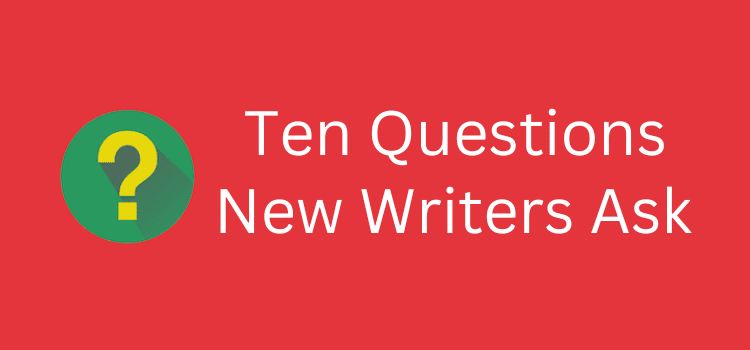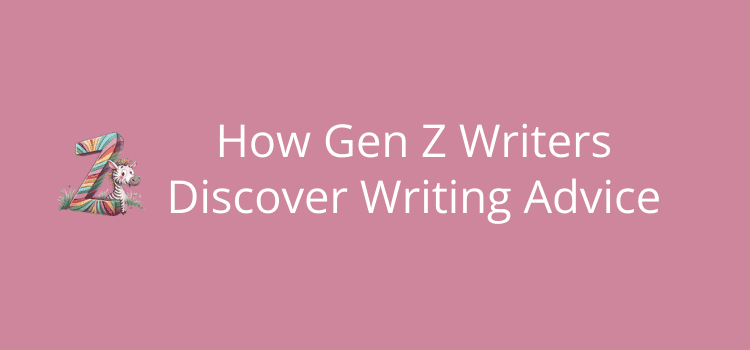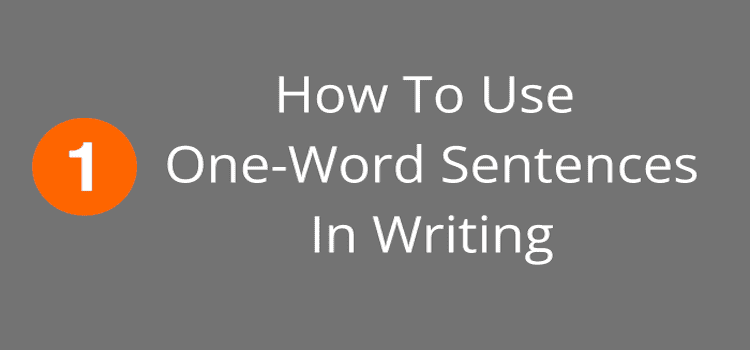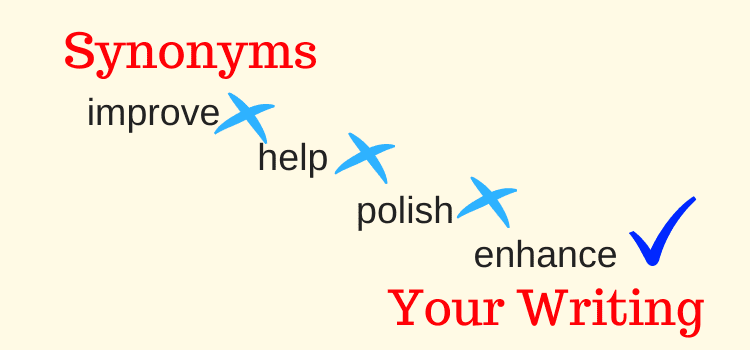
The questions new writers ask usually fall into two general categories.
The first is about trying to find a starting point. In other words, how can I become a writer?
The second group of questions is often about confidence. Am I good enough?
Over the years, new writers have asked me so many questions that it would be impossible to list them all in one short article. But I’ll try to cover them generally by highlighting the ten most common questions.
New writers always have questions
Naturally, someone who is considering becoming a writer has plenty of questions.
It’s the best way to learn.
We are all writing online today in some form. It could be emails, messages, or social media posts.
So you could say that all of us are writers in some way.
But that’s not the same as wanting to dedicate yourself to writing and publishing your work.
It’s a big step to take to want to write a collection of short stories or a novel.
But not all writers want to become an author.
There are many other forms of writing, including articles, essays, opinion pieces, or technical writing.
However, all new writers need a starting point and realistic goals.
Hopefully, some of the questions and answers to follow will help.
The top ten questions new writers ask me
I could have easily made my list a top 50 or 100 questions.
But that would make for a very long read.
Instead, I have gathered most of the questions I get asked and grouped them into ten of the most common questions.
They cover many of the points that concern new writers.
1. I want to be a writer. How do I start?
The starting point is deciding what type of writer you want to be.
If you have your heart set on being an author, read a lot of books in your favorite genre.
You can practice by writing short stories to develop your style.
Try to identify what style and tone other authors use, and see if you can recreate something similar.
If you want to start writing articles or marketing content, take a look at some successful writers.
How do they connect with readers or prospective buyers?
Pay particular attention to what point of view they use.
Whatever type of writing you want to pursue, read what’s successful.
Practice and learn to discover ways to improve and hone your writing.
2. Can I be a writer if I don’t know much about grammar?
After fifty years of writing, I still learn something new about grammar every day.
If you write regularly and are inquisitive, you will keep adding to your grammar knowledge.
Anyone who says they know everything about grammar is not telling the truth.
But I can give you two grammar tips to get you started.
First is to learn how to reduce your use of the passive voice, and second, go easy on adverbs.
3. How can I publish my writing?
When I started writing, it was tough to find ways to publish.
But today, new writers have so many avenues to publish their work through online sites and services.
Of course, there is self-publishing for new authors with Amazon and other services.
But for writers, you can find almost limitless opportunities to publish articles and essays.
4. I’m worried about people criticizing my writing. What can I do?
When you publish your writing, you share your thoughts, ideas, imagination, or stories with readers.
It’s only natural that they will have opinions or draw conclusions.
Literary criticism is as old as writing, so there is no escaping it.
But if it helps, most people commenting on writing offer valid criticism to help a new writer improve.
I have received a lot of criticism regarding my writing, but I can honestly say that only a tiny number were nasty.
All you can do as a writer is accept that there will be critics. It’s simply a part of writing you learn to cope with over time.
5. Should I write books?
It’s a choice you have. You can be an author or a writer.
But there is no reason why you can’t be both.
Some article writers and bloggers turn their blog posts into ebooks.
On the other hand, many authors write regular blog posts to attract attention to their books.
So the answer is yes if that’s what you want to do.
6. Do I have to use my own name?
Many writers use a pen name, so it’s nothing new or special.
If you want to separate your identity from your writing, it’s perfectly acceptable.
However, if you register with self-publishing or affiliate marketing services, you will need to use your real name to create these accounts so you can be paid.
Using a pen name is not the same as publishing anonymously, so you will have to think about what is right for you.
If you are a debut author, rest assured that your real name will not appear anywhere.
7. Can I make money from writing?
Yes, writers can earn an income.
But don’t expect to become an overnight millionaire.
It’s tough selling books, and you won’t make a fortune from article writing.
If your writing is high quality, there are plenty of opportunities to earn money.
But for most writers, it’s a part-time or side income.
8. Am I too young to be a writer?
You are never too young or too old to start writing.
Age is not a factor at all.
Related reading: How Safe Are Writing Sites For Children And Teens?
9. What can I do to improve my writing?
Without a doubt, this is one of the most frequent questions new writers ask.
The answer is only two words.
Write more!
It might sound trite, but it’s true that the more you write, the better you write.
Every time you write a new piece, you learn something new. That’s why it’s the best way to improve your writing.
But concentrate on adding to your grammar knowledge and perhaps learning more about literary devices.
10. Do I need to use an editor?
For a new writer, using an editor is not necessary primarily because it is usually way too expensive.
But you always need the help of other people to proofread your texts or give you honest feedback.
Try to find a few friends or contacts who can help you.
Yes, you can and should use a good grammar or writing checker.
But nothing is better than pairs of independent eyes to check your writing.
Summary
Every writer or author had a starting point for their writing career.
If you want to be a writer, too, all you need to do is decide that you want to begin.
Yes, you probably have more questions that I could answer in this article.
But don’t let that stop you from continuing to find answers.
Above all else, keep writing, keep trying, keep practicing, and keep improving.
You never know what will happen from there.
Related reading: Check Your Writing Before You Publish
Share This Article


